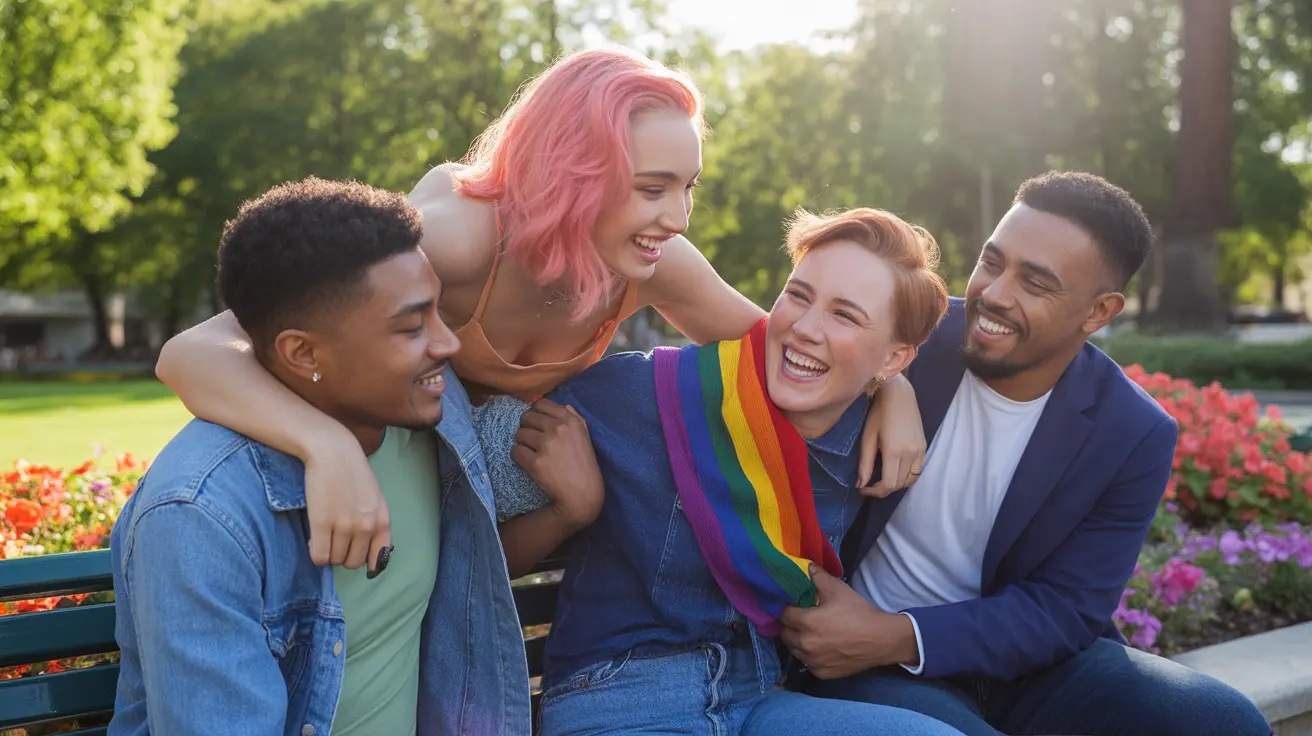Questioning whether you're "queer enough" is a common experience many individuals face while exploring their LGBTQ+ identity. This feeling of uncertainty can arise at any point in your journey, whether you're just beginning to understand your identity or have been part of the community for years. It's important to recognize that these feelings are valid, and there's no single "right way" to be queer.
In this comprehensive guide, we'll explore the complex emotions surrounding queer identity, address common concerns about belonging, and provide supportive strategies for building confidence in your authentic self. Remember, your identity is valid, regardless of where you are in your journey of self-discovery.
Understanding Identity Doubts in the LGBTQ+ Community
Identity doubts can stem from various sources, including internalized societal expectations, traditional narratives about what it means to be LGBTQ+, and pressure to fit into certain stereotypes. These feelings are particularly common among individuals who:
- Are still exploring their identity
- Don't fit traditional LGBTQ+ stereotypes
- Come out later in life
- Have had primarily heterosexual relationships
- Express their gender in ways that don't align with common expectations
The Impact of Community Gatekeeping
Gatekeeping within the LGBTQ+ community can significantly affect how individuals perceive their own identity. This might manifest as questioning someone's "authenticity" based on their appearance, relationship history, or when they came out. Such experiences can lead to:
- Increased anxiety and depression
- Feelings of isolation
- Reluctance to participate in LGBTQ+ spaces
- Questioning one's own identity
- Difficulty forming connections within the community
Navigating "Straight-Passing" Relationships
Being in a relationship that appears heterosexual to others doesn't invalidate your queer identity. Many individuals in the LGBTQ+ community face unique challenges when their current relationship doesn't visibly reflect their identity. It's essential to remember that:
- Your identity exists independently of your current relationship
- Bisexual, pansexual, and other multisexual identities are valid regardless of partner gender
- You don't need to "prove" your identity to anyone
- Your relationship status doesn't define your membership in the LGBTQ+ community
Building Confidence in Your Identity
Developing a strong sense of self-acceptance is crucial for navigating questions about your identity. Here are effective strategies for building confidence:
- Connect with supportive LGBTQ+ communities online or in person
- Share experiences with others who have similar journeys
- Educate yourself about LGBTQ+ history and diverse experiences
- Practice self-affirmation and positive self-talk
- Seek support from LGBTQ+-affirming mental health professionals when needed
Frequently Asked Questions
What are the main reasons why some people in the LGBTQ+ community feel they are not "queer enough"?
People may feel they're not "queer enough" due to societal stereotypes, lack of traditional LGBTQ+ experiences, coming out later in life, or not fitting into expected community norms. These feelings often stem from internalized expectations and misconceptions about what it means to be LGBTQ+.
How does gatekeeping within the LGBTQ+ community affect mental health and well-being?
Gatekeeping can lead to increased anxiety, depression, and feelings of isolation. It may cause individuals to question their identity, withdraw from community spaces, and experience reduced self-esteem. This can create barriers to accessing support and forming meaningful connections within the community.
What are some effective ways to cope with feelings of being an imposter in queer spaces?
Effective coping strategies include connecting with accepting community members, sharing experiences with others who have similar feelings, seeking professional support, and remembering that there's no single way to be queer. Building a support network of affirming individuals can help combat imposter syndrome.
Can being in a "straight-passing" relationship impact one's queer identity or belonging?
While being in a "straight-passing" relationship can create unique challenges, it doesn't invalidate or diminish one's queer identity. Your sexual orientation and gender identity exist independently of your current relationship status or how others perceive you.
How can individuals build confidence in their queer identity despite societal or community expectations?
Building confidence involves surrounding yourself with supportive people, engaging with diverse LGBTQ+ communities, educating yourself about different identities and experiences, and practicing self-acceptance. Remember that your journey is uniquely yours, and there's no "right way" to express your identity.




